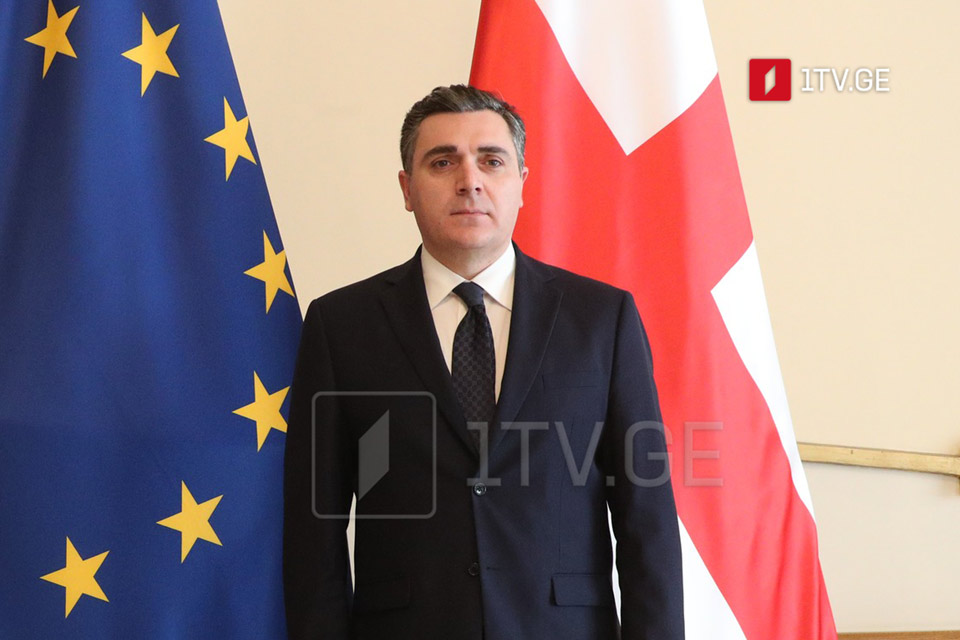
Georgian Foreign Minister Ilia Darchiashvili on Thursday sent a letter to U.S. Secretary of State, Antony Blinken, following the U.S. State Department’s move to sanction four judges Mikheil Chinchaladze, Levan Murusidze, Irakli Shengelia, and Valerian Tsertsvadze for their involvement in corruption.
Below is a full letter:
On behalf of the people and the Government of Georgia I would like to extend my highest considerations and assurances of our commitment to the strategic partnership between Georgia and the United States of America. We have been informed that the US Department of State took a decision to publicly designate three incumbent and one former judge of the independent Georgian judiciary.
Firstly, I would like to remind you of the most dire legacy inherited by the “Georgian Dream” in the judiciary in 2012 when it assumed power. The reality on the ground was indeed grave: the court system had effectively been incorporated into the prosecution as its sub-division, transforming it into another link in the repressive machine of the authoritarian regime in place at the time; over 99% of cases heard ended in convictions; more than 300 thousand citizens were tried in court; elite corruption was permeating the judiciary as well as other spheres, the authorities were committing systemic crime. Under the conditions of an unjust and repressive judiciary the prison population swelled to 25 thousand, while the practice of systemic torture and inhumane treatment towards those incarcerated became rampant. As a result, mortality rate among the incarcerated reached the unprecedented high levels. After the “Georgian Dream” assumed power, the number of prisoners decreased two and a half times. The mortality rate plummeted tenfold. Additionally, after assumption of power by the “Georgian Dream”, pre-trial detentions decreased threefold, administrative convictions decreased threefold, the number of accepted motions for investigative actions halved, bail rulings decreased 20-fold, number of fines issued decreased fivefold, etc.
Under the previous government and its court system the Georgian people were unable to find justice within the state, having to appeal to the European Court of Human Rights. During the period from 2004-2012 the Strasburg Court received 5 416 applications from Georgia. As a comparison, during the period from 2013-2022 the same indicator decreased to 1 132 cases. From 2009-2012 the European Court heard approximately 4 000 applications against Georgia. As of 2023 only 147 such cases are pending, which is the best indicator since Georgia has become the member of the Council of Europe. It is noteworthy, that under the previous administration the key figures responsible for creation and construction of a criminal judiciary, Mikheil Saakashvili and Zurab Adeishvili, have not been sanctioned by any state. Furthermore, regrettably, they enjoyed and still enjoy guarantees of personal immunity.
The stark drop in the number of appeals to the Strasburg court, as well as the aforementioned statistical data, clearly indicate that systemic problems were eradicated in Georgian judiciary after 2012, which is the direct result of the political will, as well as the four waves of judiciary reforms implemented by the “Georgian Dream”. Georgian citizens are now able to effectively protect their rights within the Georgian state. The judiciary has become functional and today it provides with the opportunity to effectively defend one’s rights.
The government had repeatedly appealed to critics of Georgia’s current judicial system to identify specific court cases that they believe have been ruled unfairly. However, critics have so far failed to present any evidence of such rulings. A striking example of bias by the critics of the judicial system is the decision of the Strasbourg Court in the case of the “Rustavi 2” TV channel. The ruling states that, on the contrary, Nika Gvaramia, the then general director of “Rustavi 2”, exerted pressure on the court. The ruling notes, that “groundless attacks in the media perpetrated by the director general of “Rustavi 2” against the judge can be regarded as an unlawful attempt to influence the decision of the court, and these attacks in general can contribute to undermining the authority of the judiciary”. Let us remind you, that representatives of opposition parties and non-governmental organizations, opposition-owned media outlets, the former president, the former public defender, as well as individual representatives of the diplomatic corps actively participated in an attempt to damage the reputation of the court in connection with the “Rustavi 2” case.
The Georgian court is perceived as one of the most advanced one by the citizens of Georgia and by international research. According to the “IPSOS FRANCE” survey (“Assessment of Judicial Reforms in Georgia”), 55% of the population of Georgia think that the court is fair, 52% express trust in the court, and 51% think that the court is independent. Because of the government’s ten-year work and implemented reforms, Georgia ranks high in international rankings. In the 2022 index of the rule of law of the “World Justice Project”, Georgia ranks number one in the Eastern European and Central Asian region. According to the Corruption Perception Index of 2022, Georgia is the leader in the Eastern Europe and Central Asia region, and for the first time in the history of the index, Georgia is among the top 20 countries in Europe and ahead of 11 EU member states.At the same time, work on judicial reform continues with the Venice Commission to further strengthen the independence and transparency of the judiciary and to make the legislation even more complete.
Therefore, taking into consideration the existing reality, the decision of the US State Department to designate judges, which was made public lacking any evidence, is completely incomprehensible and unacceptable. We express hope that the State Department will either provide relevant evidence or reconsiders its decision. Otherwise, the Georgian state and the Georgian people will perceive this as pressure exerted on the independent judiciary of a sovereign state and as a gross interference in its activities, which will be deemed detrimental to the long-standing friendly relations between Georgia and the USA.





